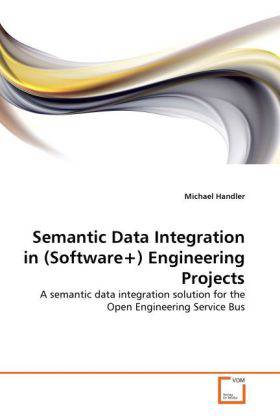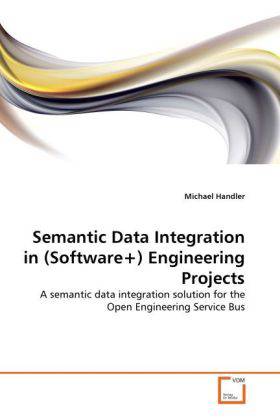
- Afhalen na 1 uur in een winkel met voorraad
- Gratis thuislevering in België vanaf € 30
- Ruim aanbod met 7 miljoen producten
- Afhalen na 1 uur in een winkel met voorraad
- Gratis thuislevering in België vanaf € 30
- Ruim aanbod met 7 miljoen producten
Zoeken
Semantic Data Integration in (Software+) Engineering Projects
A semantic data integration solution for the Open Engineering Service Bus
Michael Handler
Paperback | Engels
€ 82,45
+ 164 punten
Omschrijving
The major problem that arises, when complex systems have to be engineered, is weak interoperability of tools in one engineering domain and especially between tools of different engineering domains. Incompatible syntactical representations of the same semantic concepts make efficient integration of engineering tools especially difficult. To solve the integration problem often costly and hard to maintain point to point integration between the tools is done. But these systems are not capable of fulfilling the requirements of a modern engineering environment, like robustness, flexibility and usability. In this book a prototype of a semantic integration system is developed as part of a larger technical integration system, the Open Engineering Service Bus. This prototype is evaluated with the help of two use cases: 1.) Definition Of Quality Criteria Across Tool Data Models in Electrical Engineering and 2.) Change Impact Analysis for Requirement Changes".
Specificaties
Betrokkenen
- Auteur(s):
- Uitgeverij:
Inhoud
- Aantal bladzijden:
- 152
- Taal:
- Engels
Eigenschappen
- Productcode (EAN):
- 9783639343090
- Verschijningsdatum:
- 29/03/2011
- Uitvoering:
- Paperback
- Afmetingen:
- 152 mm x 229 mm
- Gewicht:
- 231 g

Alleen bij Standaard Boekhandel
+ 164 punten op je klantenkaart van Standaard Boekhandel
Beoordelingen
We publiceren alleen reviews die voldoen aan de voorwaarden voor reviews. Bekijk onze voorwaarden voor reviews.








